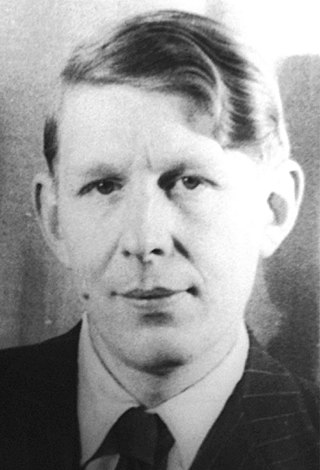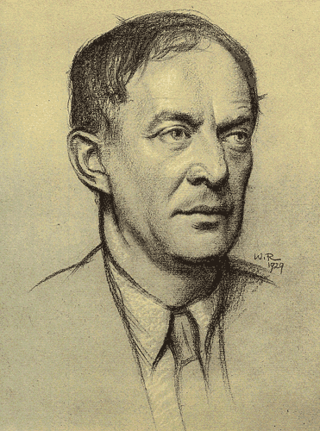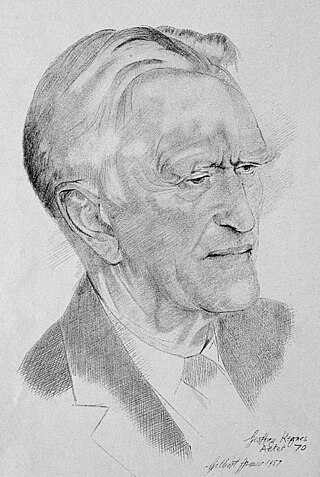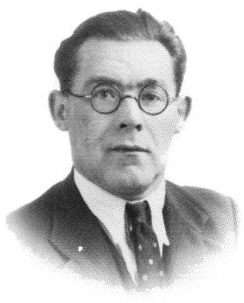Related Research Articles

Thomas Stearns Eliot was a poet, essayist, publisher, playwright, literary critic and editor. Considered one of the 20th century's major poets, he is a central figure in English-language Modernist poetry.

Wystan Hugh Auden was a British-American poet. Auden's poetry was noted for its stylistic and technical achievement, its engagement with politics, morals, love, and religion, and its variety in tone, form, and content. Some of his best known poems are about love, such as "Funeral Blues"; on political and social themes, such as "September 1, 1939" and "The Shield of Achilles"; on cultural and psychological themes, such as The Age of Anxiety; and on religious themes such as "For the Time Being" and "Horae Canonicae".

Siegfried Loraine Sassoon was an English war poet, writer, and soldier. Decorated for bravery on the Western Front, he became one of the leading poets of the First World War. His poetry both described the horrors of the trenches and satirised the patriotic pretensions of those who, in Sassoon's view, were responsible for a jingoism-fuelled war. Sassoon became a focal point for dissent within the armed forces when he made a lone protest against the continuation of the war in his "Soldier's Declaration" of July 1917, culminating in his admission to Craiglockhart War Hospital; this resulted in his forming a friendship with Wilfred Owen, who was greatly influenced by him. Sassoon later won acclaim for his prose work, notably his three-volume, fictionalised autobiography, collectively known as the Sherston trilogy.

Rupert Chawner Brooke was an English poet known for his idealistic war sonnets written during the First World War, especially "The Soldier". He was also known for his boyish good looks, which were said to have prompted the Irish poet W. B. Yeats to describe him as "the handsomest young man in England".

Walter John de la Mare was an English poet, short story writer and novelist. He is probably best remembered for his works for children, for his poem "The Listeners", and for his psychological horror stories, among them "Seaton's Aunt" and "All Hallows".

Keith Castellain Douglas was a poet and soldier noted for his war poetry during the Second World War and his wry memoir of the Western Desert campaign, Alamein to Zem Zem. He was killed in action during the invasion of Normandy.
Sir Herbert Edward Read, was an English art historian, poet, literary critic and philosopher, best known for numerous books on art, which included influential volumes on the role of art in education. Read was co-founder of the Institute of Contemporary Arts. As well as being a prominent English anarchist, he was one of the earliest English writers to take notice of existentialism. He was co-editor with Michael Fordham of the British edition in English of The Collected Works of C. G. Jung.

Sir Geoffrey Langdon Keynes was a British surgeon and author. He began his career as a physician in World War I, before becoming a doctor at St Bartholomew's Hospital in London, where he made notable innovations in the fields of blood transfusion and breast cancer surgery. Keynes was also a publishing scholar and bibliographer of English literature and English medical history, focusing primarily on William Blake and William Harvey.
Anne Barbara Ridler OBE was a British poet and Faber and Faber editor, selecting the Faber A Little Book of Modern Verse with T. S. Eliot (1941). Her Collected Poems were published in 1994. She turned to libretto work and verse plays; it was later in life that she earned official recognition, receiving an OBE in 2001.

Frederick Louis MacNeice was an Irish poet and playwright, and a member of the Auden Group, which also included W. H. Auden, Stephen Spender and Cecil Day-Lewis. MacNeice's body of work was widely appreciated by the public during his lifetime, due in part to his relaxed but socially and emotionally aware style. Never as overtly or simplistically political as some of his contemporaries, he expressed a humane opposition to totalitarianism as well as an acute awareness of his roots.

Idris Davies was a Welsh poet. Born in Rhymney, near Merthyr Tydfil in South Wales, he became a poet, originally writing in Welsh, but later writing exclusively in English.
May Wedderburn Cannan was a British poet who was active in World War I.

The Barrack-Room Ballads are a series of songs and poems by Rudyard Kipling, dealing with the late-Victorian British Army and mostly written in a vernacular dialect. The series contains some of Kipling's best-known works, including the poems "Gunga Din", "Tommy", "Mandalay", and "Danny Deever", helping consolidate his early fame as a poet.
Afterword on Rupert Brooke is a poem by F. T. Prince published in 1976. Prince's note on the poem states, "The verse is syllabic, in a measure of twelve syllables devised by Robert Bridges." He is referring to Bridges' Neo-Miltonic Syllabics. Prince writes that Bridges' poem "Poor Poll" was his first illustration of the meter's potentialities, and remains the best guide to its structure. He also states that he allowed himself fewer elisions than did Bridges in the later and more famous example of the meter, The Testament of Beauty (1930), and that he aimed for a "greater variety of rhythm" than displayed in Bridges' poem.
Neo-Miltonic Syllabics is a meter devised by Robert Bridges. It was first employed by the poet in a group of poems composed between 1921 and 1925, and collected in his book New Verse (1925). In "Kate's Mother," included in New Verse, Bridges had found that form which he later employed in The Testament of Beauty, a book-length poem written when he was over eighty. He arrived at that syllabic meter used in the New Verse collection by way of his earlier detailed analysis of John Milton's versification in Milton's Prosody.
Hugo Williams is an English poet, journalist and travel writer. He received the T. S. Eliot Prize in 1999 and Queen's Gold Medal for Poetry in 2004.
This is a bibliography of books, plays, films, and libretti written, edited, or translated by the Anglo-American poet W. H. Auden (1907–1973). See the main entry for a list of biographical and critical studies and external links.

Collected Poems is the title of a posthumous collection of Philip Larkin's poetry edited by Anthony Thwaite and published by Faber and Faber. He released two notably different editions in 1988 and 2003, the first of which also includes previously unpublished work. Both editions include the contents of Larkin's collections The North Ship, The Less Deceived, The Whitsun Weddings and High Windows, plus other material.
The Definitive Edition of the verse of Rudyard Kipling (1865–1936) was published in 1940 in London by Hodder and Stoughton, Ltd and in Edinburgh by R. R. Clark. It is a one-volume collection and was printed on India paper.
Janet Buchanan Adam Smith OBE was a writer, editor, literary journalist and champion of Scottish literature. She was active from the 1930s through to the end of the century.
References
- ↑ "Preface". Oxford Dictionary of National Biography. January 2007.
- ↑ "Professor F. T. Prince". The Independent. 8 August 2003. Retrieved 10 August 2011.
Author of one of the two best-known poems of the Second World War
[ dead link ]